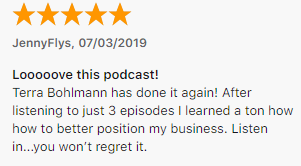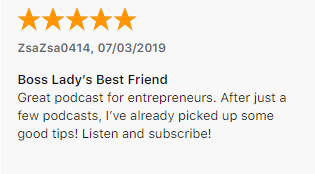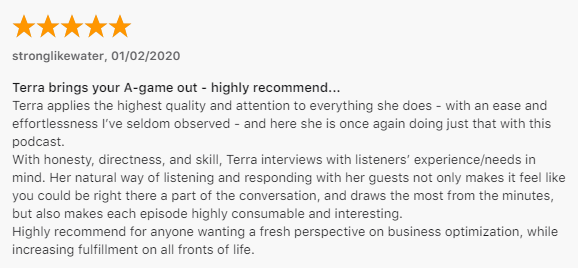The Fast-Track Woman Podcast: Episode #7
Secrets of a Best-Selling Ghostwriter with Dr. Cindy Childress
Click the Play Button + Listen Below.
Meet Podcast Guest, Dr. Cindy Childress.
Cindy Childress, Ph. D. is a ghostwriter and book editor for coaches and consultants that go on to achieve Amazon Bestseller status, book TEDx Talks, build caching businesses, and create nonprofits.
She developed her Write My Book BlueprintTM framework to create reading experiences that encourages reviews and word of mouth and turns readers into lifelong fans of the author. She’ll teach this curriculum at her Write Your Best Seller retreat in Paris.
Cindy holds a Ph.D. in English teaches creative writing classes at Writespace Houston and is a foster mom with Citizens for Animal Protection in Houston, TX.

About this Podcast Episode.

What does it really take to write a best-selling book that impacts others? Terra talks with Dr. Cindy Childress, The Expert's Ghostwriter, to break down how to pick the right book to write, how to get started and the difference between self-publishing and having a publisher.
If people tell you that you should write a book or if you have a yearning to write a book someday, you'll love this episode and the takeways to get you started on your journey.
Resources, Tools, and Links Mentioned in this Episode.
- To learn more about Cindy, visit www.childresscommunication.com.
- Click HERE to create your FREE 20 Seconds Power Sentence with Cindy.
- Apply for your complimentary Fast-Track Session with Terra HERE.
Read and Download the Transcript for this Episode.
Interact More with the Podcast.
Great Reviews Make My Heart Sing.



Much appreciation from one happy Podcast Host!
Are you subscribed to my podcast?
If you’re not, you should subscribe so you never miss an episode.
And...I invite you to take it a step further + leave a 5-Star review.
To give a review, click the image and select “Ratings and Reviews” and “Write a Review” on iTunes.
Share a takeaway what you learned and let other women entrepreneurs know why they should listen to the podcast.
Reviews help other women entrepreneurs find my podcast and I truly enjoy reading them.
It takes a community of like-minded women to help other like-minded women succeed.
(Oh, by the way, I love to do shout-outs on future episodes and you just may hear your name!)



